What You Need To Know About Optimal Gut Health – 6 Best Foods for Optimal Gut Health
6 Best Foods for Optimal Gut Health
Overview
The role of gut health in overall wellness has long been emphasized in traditional medicines. Hippocrates—the father of modern medicine—famously remarked once that all disease begins in the gut. Ayurveda, the holistic healing system that originated in India about 5,000 years ago, also establishes digestive wellness as a precondition for leading a disease-free and productive life. Emerging evidence suggests that this age-old wisdom may not be very far from the truth.
Over 100 trillion microbes live inside our digestive tract, the composition of which determines the state of our health at all levels. Studies have shown that a favorable and diverse gut microbiome provides protection against infection-causing microbes, regulates immune responses, fights gut inflammation, aids in digestion, facilitates nutrient metabolism and absorption, and helps maintain the structural integrity of the gut barrier.
The best foods for digestive health are the ones that can help feed the beneficial bacteria and support a flourishing gut microbiota. Experts suggest that while every person responds differently to different foods, a typical gut healthy diet should include a wide variety of probiotics, fiber-rich whole grains, lean proteins, leafy greens, beans and legumes, nuts and seeds, and seafood.
Read on to learn more about these 6 gut-healthy foods.
6 healing foods for gut health and digestion
1. Fermented foods for gut healthy probiotics
An imbalance in the gut microbial community (dysbiosis) has been linked with frequent digestive problems, GERD, chronic constipation, sleep issues, skin infections, physical and mental fatigue, brain fog, and low mood. Including fermented foods in your meals is one of the fastest and easiest ways to restore gut balance and improve digestion.
Fermentation uses active living cultures of gut friendly bacteria and can directly supply a diverse range of probiotics. Moreover, the food processing method amplifies the nutritional value of foods and makes them easier to digest. Studies have shown that fermented foods and drinks can help enrich the gut microbiota, boost immunity, lower blood sugar, soothe gut inflammation, and improve conditions like leaky gut and irritable bowel syndrome.
Yogurt, kimchi, kombucha, miso, tempeh, sauerkraut, and kefir are some of the healthiest examples of fermented foods. Increased consumption of these foods has also been linked with a lower risk of metabolic diseases like obesity, type-2 diabetes, cardiovascular disease, stroke, and certain types of cancer.
2. Whole grains for nourishing the good bacteria
Whole grains like oats, barley, rye, sorghum, and brown rice are rich in beta-glucan—a type of fermentable fiber found in some plant foods, as well as in reishi mushrooms and seaweed. Studies have linked beta-glucans with a wide range of health benefits, from immunity and digestion to diabetes control and heart health.
Soluble fibers like beta-glucans bind with water and form a gel, which slows down the movement of food inside the intestines. This promotes satiety, provides steady energy, and stabilizes blood sugar levels.
As the human body cannot digest this substance, it ends up in the colon, where the friendly gut bacteria can ferment and use it as food. Several studies have shown that including whole grains, particularly oats and barley, in your diet can support a flourishing population of probiotics like lactobacilli and bifidobacteria in the digestive track.
3. Apples and other pectin-rich fruits for disease prevention
Pectin is a unique class of soluble dietary fiber found in apples, apricots, pears, guavas, peaches, plums, gooseberries, and citrus peels and pulp. It contains long chains of indigestible sugars, which work as prebiotics to feed the good bacteria. Research shows this fiber can ease the movement of food inside the digestive tract and help with various gastrointestinal issues. Pectin has also been found to promote weight loss, improve insulin sensitivity, and lower bad cholesterol and triglyceride levels.
When the microbes in your colon ferment soluble fibers, this process generates short-chain fatty acids, which are the primary source of energy for colon cells and play a vital role in disease prevention. Pectin is an excellent choice among fibers for creating these healing compounds.
Studies have found that pectin from food sources can increase the production of butyrate, a short-chain fatty acid that can help maintain gut integrity, lower bowel inflammation, and improve conditions like ulcerative colitis and Crohn’s disease. In numerous lab and animal studies, both butyrate and pectin have been found to prevent colon cancer. Interestingly, taking butyrate supplements alone has not been found to have a similar protective effect, which has led researchers to believe that it must come from fermented fiber.
4. Berries for gut healthy nutrients and prebiotics
Berries are among the most wholesome foods you can eat for your digestive and overall health. Blueberries, blackberries, cranberries, raspberries, and acai berries are all excellent sources of gut healthy nutrients and prebiotics. They provide plentiful amounts of fiber, B-group vitamins, vitamins C and K, iron, potassium, and magnesium—the very nutrients that play a key role in food digestion, nutrient absorption, and waste elimination. Berries are also loaded with powerful antioxidants like anthocyanins that protect cells from damage, improve intestinal barrier function, and reduce inflammation.
Research shows that fiber and polyphenols found in berries act as food for gut friendly bacteria and increase their abundance while also killing pathogenic microbes. Regular consumption of berries has been shown to prevent gut dysbiosis and reduce pro-inflammatory cytokines. In a 2020 study, researchers found that berries may also prevent colon cancer by choking the blood supply of tumors and promoting apoptosis in them.
5. Fatty fish for fighting gut inflammation
Fatty fish like salmon, sardines, tuna, mackerel, trout, and herring are among the healthiest gut superfoods on the planet. They provide high-quality protein and are loaded with B vitamins, calcium, phosphorus, magnesium, potassium, iodine, iron, zinc, and selenium. In addition, they are the richest food sources of omega-3 fatty acids and vitamin D—two crucial nutrients that have a profound role in digestive and mental wellness (due to the gut-brain connection). However, use caution when consuming farm raised these fatty fish as they tend to have higher levels of mercury which is hazardous to your health.
Research shows that omega-3 fatty acids can improve intestinal immunity and fight inflammation through various mechanisms. It increases the diversity and abundance of gut microflora, improves intestinal barrier function and thickness, protects the digestive tract from damage, and increases the production of short-chain fatty acids. One study found omega-3 PUFAs to significantly increase the population of butyrate-producing bacteria.
Vitamin D in fatty fish is another important nutrient that improves gastrointestinal motility, eases chronic constipation, and protects the integrity of the mucosal layer. It also facilitates the absorption of calcium, which helps the gut bacteria produce short-chain fatty acids from fibers. Supplementation with vitamin D is currently being studied as a complementary therapy for IBS and Crohn’s disease.
The type and quality of protein in your diet also have a significant impact on gut microbiome composition and microbial metabolites. Regular consumption of fatty fish has been linked with a lower risk of inflammatory bowel disease, colon cancer, heart disease, fatty liver disease, obesity, arthritis, and various inflammatory conditions.
6. Spices—the best foods for gut health overall
Though spices have been badmouthed for quite some time, they have been used for centuries to improve digestion and digestive health. Spices are loaded with essential minerals and polyphenols that can feed the gut bacteria, kill germs, lower inflammation, and heal the intestinal lining. Well-spiced meals are easier to digest and promote satiety. However, not all spices work in a similar manner. To use them correctly, it is important to understand how different spices affect your digestive system.
Hot and pungent spices such as black pepper, cayenne, cinnamon, garlic, cloves, onions, paprika, and chilies are useful in stimulating the secretion of digestive juices and enzymes. They increase metabolism, help break down complex proteins and fats, and facilitate nutrient absorption. People who frequently face problems like hyperacidity and acid reflux should use these spices sparingly and in moderation.

Bitter spices like fenugreek, dandelion root, cumin, and turmeric are great detoxifiers and have enormous health benefits. While they may not have the most appealing flavor, bitter spices help bring out other flavors and keep the digestive tract clean from metabolic toxins, germs, and parasites. They also help regulate blood sugar levels, reduce blood pressure, and aid the liver in blood detoxification.
Spices tend to be synergistic in nature. When used in combination, they amplify the healing effect and minimize the negative effects of each other. The key to optimal digestion lies in achieving the right balance and using them in minimal quantities. Numerous studies have shown that daily 5g consumption of mixed spices can help maintain a healthy gut microbiome and prevent dysbiosis. In people who do not regularly consume spices, even a single dose of mixed spices has been found to restore microflora balance.
Final thoughts
A healthy and diverse gut microbiota ensures optimal digestion and plays a crucial role in the prevention of long-term gastrointestinal disorders like
The gut microbes love variety most of all. Eat a wide variety of anti-inflammatory foods and try to include both probiotics and prebiotics in your diet. Look for foods that are rich in low-fat protein, fiber, omega-3 PUFAs, polyphenols, B vitamins (particularly B12), vitamin D, magnesium, potassium, zinc, selenium, and collagen. Certain specific types of fibers like inulin, resistant starch, pectin, and guar gum are more beneficial than other plant fibers for nourishing gut microbes. Also, try to cut back on added sugar, artificial sweeteners, and alcohol, as these foods are well-known to cause imbalance.
Remember, “Do Something Everyday that Heal Your Body!”
To Your Health!
References
https://www.ncbi.nlm.nih.gov/pmc/articles/PMC7071260/
https://www.frontiersin.org/articles/10.3389/fmicb.2018.01785/full
https://pubmed.ncbi.nlm.nih.gov/33337097/
https://www.ncbi.nlm.nih.gov/pmc/articles/PMC6590564/
https://www.ncbi.nlm.nih.gov/pmc/articles/PMC6627368/
https://www.nature.com/articles/s41598-021-90453-7
https://pubmed.ncbi.nlm.nih.gov/31808762/
https://pubmed.ncbi.nlm.nih.gov/22190137/
https://www.frontiersin.org/articles/10.3389/fmicb.2019.00223/full
https://pubmed.ncbi.nlm.nih.gov/15857221/
https://www.frontiersin.org/articles/10.3389/fendo.2020.00025/full
https://pubmed.ncbi.nlm.nih.gov/24388214/
https://pubmed.ncbi.nlm.nih.gov/29756574/
https://pubmed.ncbi.nlm.nih.gov/26431111/
https://nutritionj.biomedcentral.com/articles/10.1186/s12937-022-00777-x
https://www.ncbi.nlm.nih.gov/pmc/articles/PMC7801035/
https://www.ncbi.nlm.nih.gov/pmc/articles/PMC4291444/




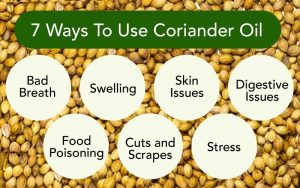



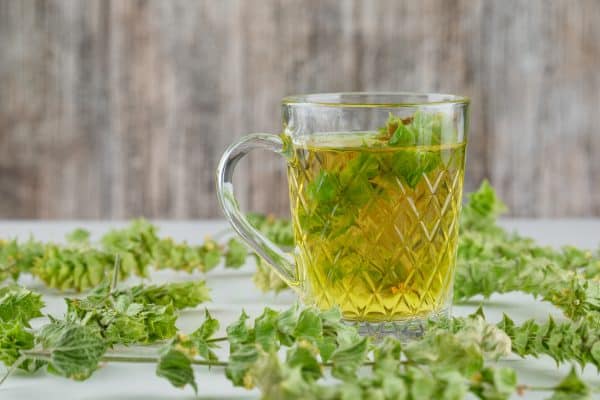



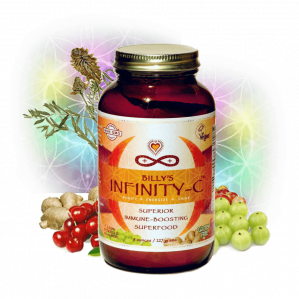
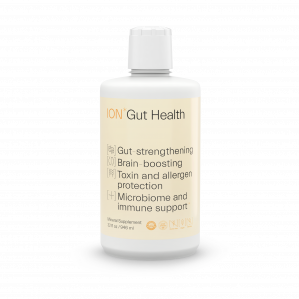

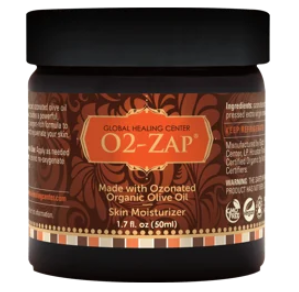
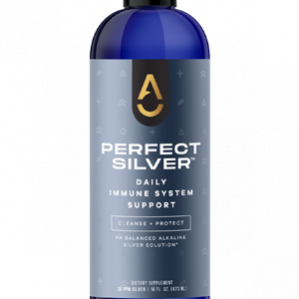











1 Comment
[…] Health: When ingested, activated carbon can bind to toxins, gas, and other chemicals in the digestive tract, preventing their absorption into the bloodstream. This can help alleviate symptoms of gas, […]